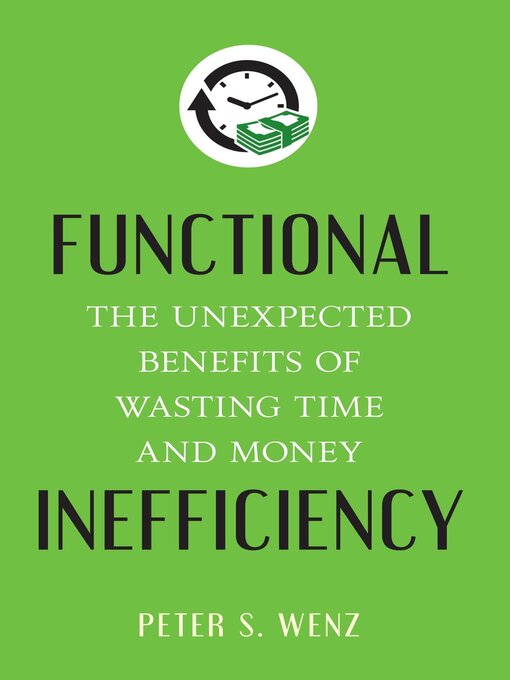- Available now
- New audiobook additions
- Most popular
- Audiobooks for the Whole Family
- Great Narrators
- See all audiobooks collections
-
Creators
-
Publisher
-
Release date
June 28, 2019 -
Formats
-
Kindle Book
-
OverDrive Read
- ISBN: 9781633880412
- File size: 980 KB
-
EPUB ebook
- ISBN: 9781633880412
- File size: 980 KB
-
-
Languages
- English
-
Reviews
-
Publisher's Weekly
April 27, 2015
The solution to reducing unemployment? Inefficiency, according to philosophy professor Wenz’s (Take Back the Center) bold manifesto, which poses seemingly paradoxical solutions to America’s economic ills. While labor inefficiency would appear to doom the U.S. economy by making American workers even more expensive than they already are, Wenz points out that European countries have strong labor unions and reduced work weeks, and they still enjoy favorable trade balances. True, the European approach requires more socialistic practices than American voters would likely support: government-provided daycare, medical care, and leisure, paid for by significantly higher taxes. But Wenz contends that we already tolerate rampant inefficiency. Americans pay significantly more for health care than people in other countries do, with inferior outcomes. Americans drive private automobiles rather than developing efficient systems of public transportation. And Americans promulgate a consumerist culture that, if fully embraced by the developing world, threatens the whole planet. Wenz throws out ideas almost faster than the reader can absorb them—a paragraph seldom passes without at least one footnote—yet some sensible notions arise from this bustling compendium. Wenz wisely suggests expanding employment in education, energy production, and infrastructure improvement—all areas, he says, that are ripe for infinite expansion and can improve both GNP and quality of life.
-
Formats
- Kindle Book
- OverDrive Read
- EPUB ebook
subjects
Languages
- English
Loading
Why is availability limited?
×Availability can change throughout the month based on the library's budget. You can still place a hold on the title, and your hold will be automatically filled as soon as the title is available again.
The Kindle Book format for this title is not supported on:
×Read-along ebook
×The OverDrive Read format of this ebook has professional narration that plays while you read in your browser. Learn more here.

